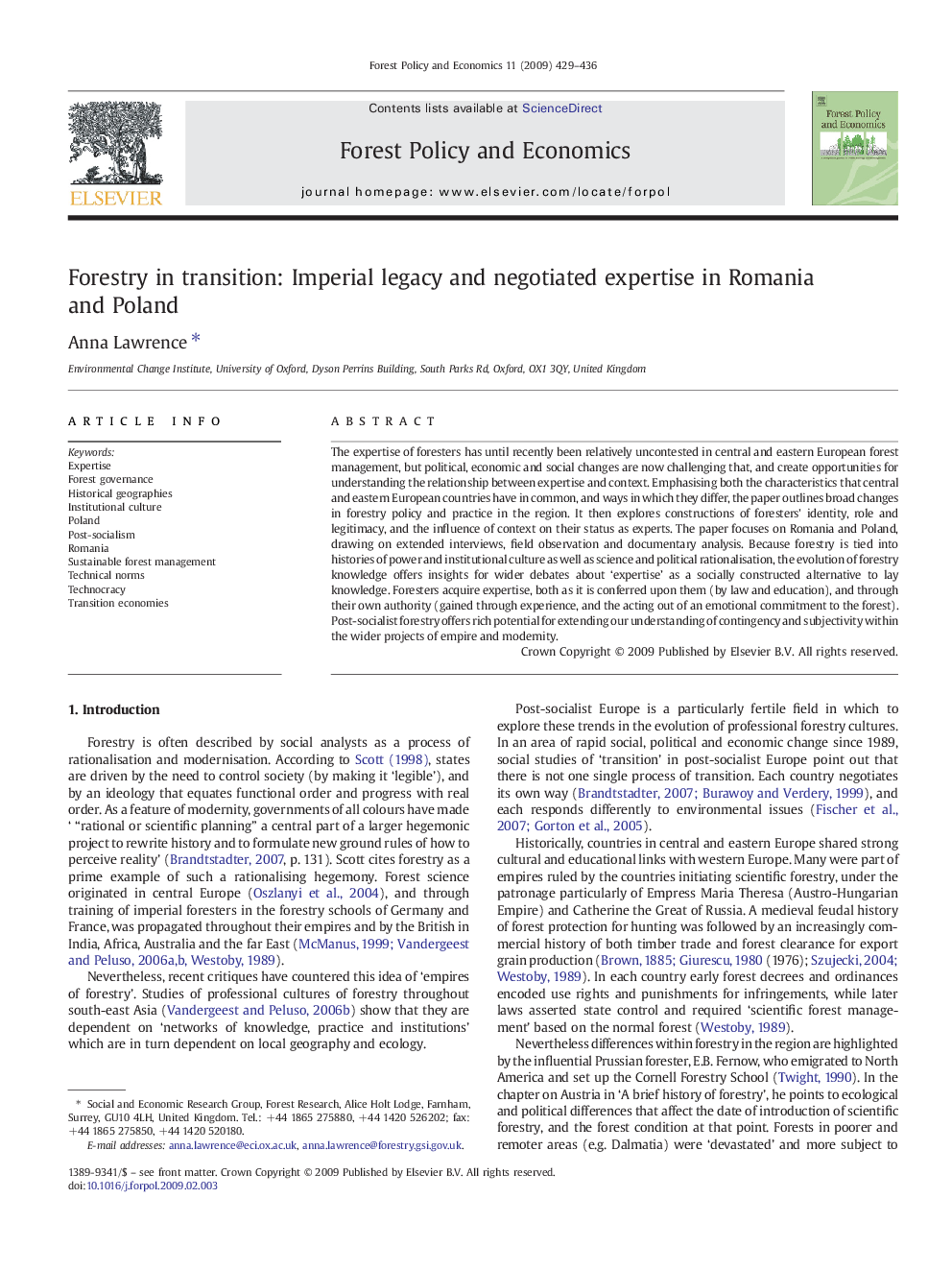| Article ID | Journal | Published Year | Pages | File Type |
|---|---|---|---|---|
| 91296 | Forest Policy and Economics | 2009 | 8 Pages |
The expertise of foresters has until recently been relatively uncontested in central and eastern European forest management, but political, economic and social changes are now challenging that, and create opportunities for understanding the relationship between expertise and context. Emphasising both the characteristics that central and eastern European countries have in common, and ways in which they differ, the paper outlines broad changes in forestry policy and practice in the region. It then explores constructions of foresters' identity, role and legitimacy, and the influence of context on their status as experts. The paper focuses on Romania and Poland, drawing on extended interviews, field observation and documentary analysis. Because forestry is tied into histories of power and institutional culture as well as science and political rationalisation, the evolution of forestry knowledge offers insights for wider debates about ‘expertise’ as a socially constructed alternative to lay knowledge. Foresters acquire expertise, both as it is conferred upon them (by law and education), and through their own authority (gained through experience, and the acting out of an emotional commitment to the forest). Post-socialist forestry offers rich potential for extending our understanding of contingency and subjectivity within the wider projects of empire and modernity.
